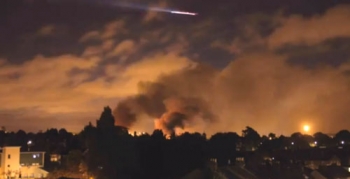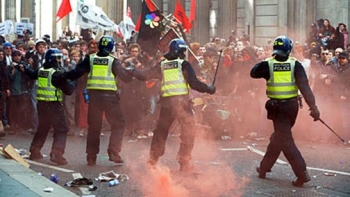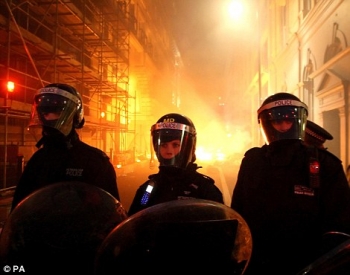The riots that took place in London and in many other cities across England last week have been a source of much debate, discussion and argument over the last few days. News channels and TV shows have brought in various pundits to analyse and dissect the violent events which unfolded on British streets. However, many are brought onto our screens to propagate an extremist view of the situation, since, after all, these news channels need to boost their ratings and exposure. Politicians too have tried to milk this situation for political capital and I doubt that the British media has helped in providing a mature and balanced view of the problem and its solutions.
As a Buddhist, the violent rhetoric of both sides of the debate has left me feeling rather anxious about the future of the peace movement here. For instance, reactions on the conservative side of the political spectrum to the riots have often been tinged with violent undertones. The rioters have been likened to animals who need to be “removed” from society. In this way, many in the population are calling for some form of retribution against the rioters that often is tantamount to vengeance. It is no surprise to me that the most popular petition on the British government’s website as of last week was a call to bring back the death penalty!
On the other side, those who interpret these riots as part of a wider protest against government cuts and the general impoverished malaise of the underclass in Britain are often far too slow to criticise the violence of the rioters. During the last few days, I have been challenged repeatedly for opposing the violence of the rioters on the grounds that the idea of peaceful protest is somehow a luxury of the privileged. This notion that supporting peace and non-violence is somehow an idea used to suppress the masses under the banner of liberal democracy is becoming more prevalent in anti-establishment circles. A non-violent standpoint has begun to be interpreted as pure pacifism or as supporting the status quo.
Buddhists in the West have perhaps enjoyed the luxury of the favourable opinion of Buddhism in society. It is very rare to hear of Buddhists being persecuted here and the large majority of the population is open and appreciative of the basic tenets of the tradition. However, we should perhaps not take this situation for granted. The various reactions to the riots in London have shown that the principle of “non-violence” is not yet a cherished tradition of society and perhaps never will be. It is perhaps time for the peace movement to take stock and create a more coherent message to society as its voice is now rarely heard. The Buddha’s teaching of non-violence was not meant for an elite who were privileged enough to practice these lofty ideals. In fact, this central tenet of non-violence originated at the periphery of society, within the renunciate traditions of Buddhism and Jainism. In this way, the doctrine of non-violence is the teaching of the homeless and disenfranchised. The Buddha was clear that monastic poverty was the best route to enlightenment. That his teachings could be interpreted as representing the philosophy of wealthy elites is an anathema to Buddhism’s early history.
In this regard, I feel it is necessary for an accurate and reinvigorated doctrine of non-violence to be represented by the Buddhist traditions in the UK. It is important to convey to those who have lost faith in the principles of non-violence that non-violence does not equal pacifism. In fact, using non-violent means for protest is perhaps the most powerful tool for social change. It is not a lofty ideal that can only be practiced by those who are safe and secure. It is a principle that is deeply rooted in the society of the vulnerable and oppressed. It allows those who are powerless to harness a power far greater than any government can wield over its people; a power that can ultimately liberate us from all human suffering forever.

















